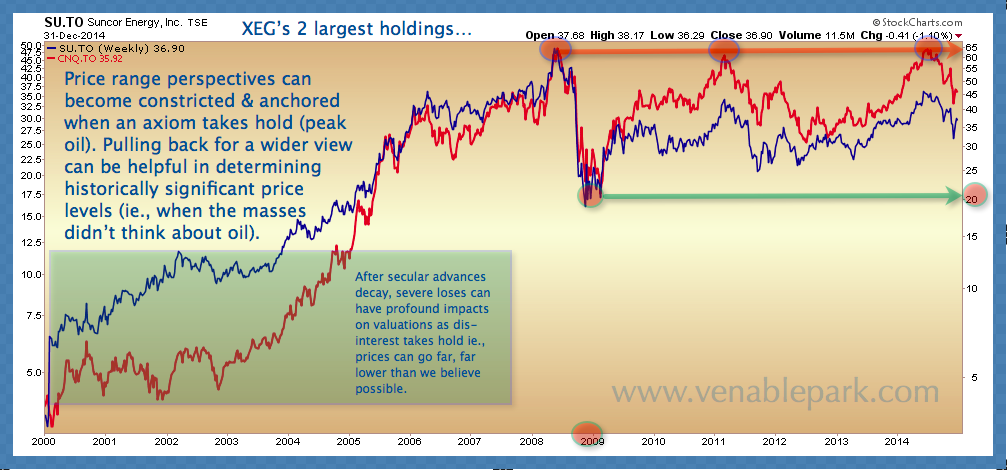Levered booms always go bust. The only way to survive and thrive through the cycle is to accept this fact and control our risk exposure through low debt, high savings and avoidance of the most over-priced assets and sectors. Preparation and discipline is everything. For those who have not learned this lesson to date, the next schooling has begun. Lest we kid ourselves: energy has been ‘the’ engine driving growth and jobs in the real economy over the past 6 years, its collapse now will be felt across the entire economy.
Michael Feroli, chief U.S. economist at JPMorgan Chase & Co., talks about the impact of oil prices on the economy of Texas, North Dakota, California, Alaska and Oklahoma [Alberta, Newfoundland and Labrador too]. Here is a direct video link.
As for how low energy prices and related company shares and bonds can go, the answer is far lower than most can imagine. Anchoring our expectations to a price point in recent memory is likely to prove devastating. The following long term perspective of Suncor and CNQ (the two largest holdings in the Canadian energy sector ETF) offers a glimpse of the mean reversion that is possible (green band lower left) now that the secular energy boom since 2000 has bust.



